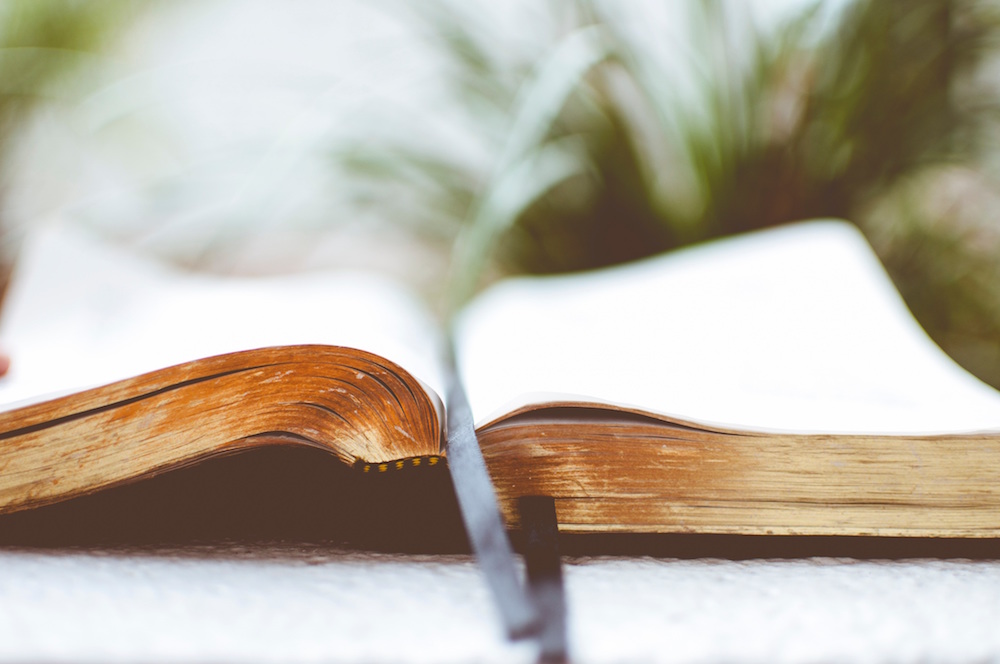
Welcome to the Book of Common Prayer! We’re so glad you’re here. We know you feel a little self-conscious breaking open a book of liturgy for a church you’ve never actually attended. But don’t worry! We’re here to help. Remember: you’re alone. No one can see you make a fool of yourself except God, and He actually prefers you a little off-kilter.
Where do I start?
Daily Devotions for Individuals and Families is a great tool: devotional outlines for morning, noon, and early and late evening.
But wait, that’s only four pages. Total. Isn’t that a little, well, lazy?
Oh, evangelicals. You’ve got to make your eyeballs bleed before it counts as spiritual. Here’s the idea: you could actually commit to this multiple times a day, even if you have small children or are Ryan Seacrest.
But I’d read the same short Bible verses every day. Won’t I get bored?
You might. Or you might actually start breathing and thinking and owning the words right when you most need them. Evangelicals call that “memorizing Scripture” but they make it sound really hard.
But it’s hardly worth buying a 1000-page book if I’ll only use four pages.
Who said anything about only using four pages? That’s the gateway drug.
One day, you won’t quite make it to the Daily Devotions section; the book will flop open to Morning Prayer or Order for Evening by accident.
You’ll see the cadences of the language, the bits of Latin and Greek (Phos Hilaron, Magnificat) and you’ll feel the whispers of Miss Marple, Adam Dagliesh, and Emma Woodhouse urging you on. Pretty soon you’ll be brewing tea (an extra bag for the pot!) and murmuring “Lord have mercy.”
(And there’s an online BCP if you’re not ready for a hard copy.)
I’m trying Morning Prayer, but I’m getting a bit lost. Is it just me, or does this service feel like a Choose Your Own Adventure novel?
I know, I know, the Additional Directions take some practice. We just had to account for every possibility—holidays, officiants, deacons, personal preference. It’s the “Saxon” in WASP.
What’s with the asterisks?
They’re the signal for you to stand. Yes, even at home. Go on, get up!
No, wait, wait. That was mean. They’re just a little signal for a breath. Kind of like the supposed meaning of the word selah in the Psalms.
And a collect? That sounds like some sort of communist manifesto.
Well, we do call a trunk a “boot.” It’s just our name for a corporate prayer.
While we’re on that topic, there are whole sections of these: The Collects for the Church Year, and Prayers and Thanksgivings, and the Great Litany. We’re pretty proud of them. You can pray for everything and the kitchen sink.
Wow, okay. Now I’m starting to use more of the book. Any other sections I should know about?
Ever heard of the Psalms?
Oh! The whole Psalter is included? That’s pretty handy.
You’re welcome. Now check out Daily Office Year 1 and 2.
Bible readings for every day. Wow, and organized according to the church calendar.
Yeah, the One Year Bible stole our thunder.
But wait, it looks like you left some verses out. Is that on purpose?
Weeellll, some of the parts that none of us like so much, like that Psalm that’s all lyrical about the waters of Babylon, but ends with babies getting killed? We kind of, um, selectively edited.
Is that allowed?
Hey, no one’s preventing you from reading it elsewhere. They’re just suggestions.
Hmmm. Not sure how I feel about that.
We’re not sure what we feel about those passages either.
That’s not what I—oh, never mind. Anyway, what the heck is a proper?
It’s a week not otherwise labeled by a nearby church holiday. From Advent through Trinity Sunday, all the weeks are designated by a holiday (fourth week after Epiphany, second week of Lent). After Trinity Sunday, the main church holidays are over, and they’re all just labeled “Proper 1, Proper 4, Proper 29”.
Just go with it.
Incidentally, there’s a cool chart to figure out when Easter is back there. It’s like a science project.
Awesome! I guess there is a reason this thing is 1000 pages long.
Right? And we haven’t even mentioned the services for holidays like Easter or Ash Wednesday. Like the moment during the Holy Saturday service where you start reading from the Burial service? (Shivers). Seriously, it might make you want to go to church on Easter for once.
Who said I didn’t like Easter? I like Easter. I mean, don’t you?
Sure, sure, we all like Easter, except the frenetic brightness, crowds and nervous energy. They can be great, but let’s get real: Easter services are like the cotton candy of the church year.
(Silence)
Don’t feel bad. We all feel that way sometimes. But now you can come home and read through the Easter Vigil and you’ll be surprised at how you feel exultant when you say, “He is risen indeed!”
Yeah. I mean, Amen. And Amen. I guess I better get started.
Go for it. And start small. Really. When you feel hungry, try something new. You can always come back for more.
That sounds—good, actually. Thanks.
You’re welcome. Really.
Can I pray for you? It’s one of the oldies but goodies.
Almighty and eternal God, so draw our hearts to thee, so guide our minds, so fill our imaginations, so control our wills, that we may be wholly thine, utterly dedicated unto thee, and then use us, we pray thee, as thou wilt, and always for thy glory and the welfare of thy people; through our Lord and Savior Jesus Christ. Amen.
*Not approved or reviewed for accuracy by the Anglican or Episcopalian church.














 I release you
I release you
Wonderful! 🙂
I do enjoy the Book of Common Prayer, I must admit. There are places where it’s delightfully parallel to Jewish liturgy / worship. And of course places where it’s not, and those are interesting too…
I LOVE getting your perspective on this. I wonder how/why the two liturgies are similar? Do they have similar roots (perhaps the BCP being based on Jewish services?) or is it just the common ground of worship? Thanks for the comment 🙂
The liturgy has it’s roots in the Old Testament and was implemented by Jewish followers of Jesus an itinerant rabbi. The Book of Common Prayer is laced with the Psalms, poems and songs of the Jewish people, particularly of Kind David.
I think one of the things we have lost in our contemporary christian service is the connection with those roots.
Oh, that makes sense! Thanks for this insight, Dad.
Yes, I agree that there’s sort of a disconnect between the worship service and the shape of worship given to us by our traditions. I’ve been feeling it’s lack for a while. The other part I see missing is just simple _physicality_. Singing is about as far as we go physically in church–it’s so much head knowledge.